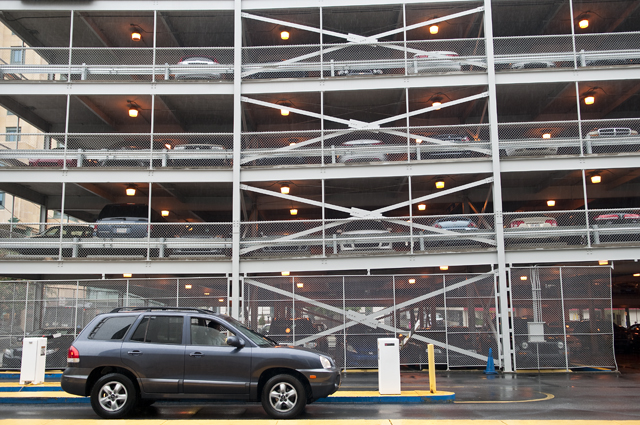Last summer, voters from a 10-county region in and around Atlanta shot down a large package of transportation projects, including some major urban transit projects.

But almost immediately after, plucky Atlanta leaders were searching for other ways to move the work forward. The city of Atlanta hasn't set aside ambitions for things like the Beltline, an innovative circle of trails and transit that would ring the city.
Among the proposals being floated as a source of new revenue is an inventive solution that would go a long way toward realigning incentives in the notoriously car-centric city: taxing parking to pay for transit and streetscape improvements.
The plan could generate as much as $75 million each year, says Thomas Wheatley, a reporter at local alt-weekly Creative Loafing -- "enough to put a sizable dent in Atlanta's more than $150 million sidewalk repair backlog." To stretch those dollars further, the money could be used as a local match to attract transportation funding from the federal government.
Atlanta City Councilman Aaron Watson has been studying the proposal, which emerged from a graduate student's research paper, but he still needs to get the rest of the council on board. And even if the council approves it, the city might need state approval for the new tax. Since the state of Georgia is pretty much openly hostile to transit in Atlanta, that could sink the whole deal.
Sidewalks are in a terrible state of repair in the city. The woefully under-funded transit system, MARTA, actually bucked national trends and saw ridership dip last year. The city is also considering going to voters to approve a $200 million bond package to pay for transportation improvements.
Wheatley says the parking tax makes sense on many levels.
That revenue will help build and operate bus and rail, fill potholes, and repair decaying bridges. And it's the closest the city will ever get to making non-Atlantans pay a commuter tax for the wear and tear they put on the city's roads every day.
Plus, he writes, "It could also teach Atlanta, with its super-cheap parking, the hidden costs of 'free parking.'"
Heather Alhadeff, president of transportation and land use firm Center Forward and former transportation director for the city of Atlanta, told Creative Loafing that in addition to being financially beneficial, the tax could help change how residents view automobile storage.
"Everyone views land related to parking as something that's free," she said. "It does start to get people to think of the [parking] space as a commodity or a value and starts to change those dynamics."





